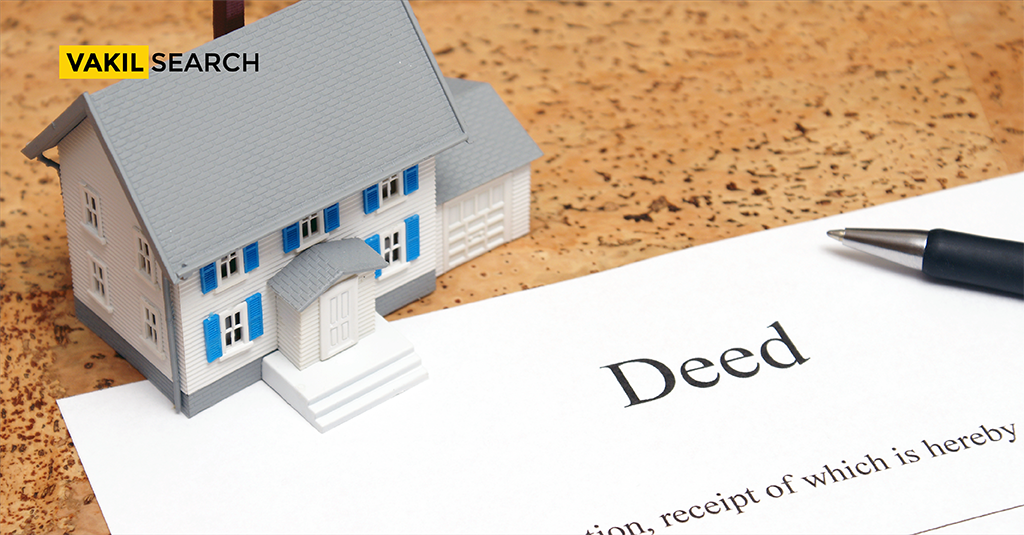Do you know everything about relinquishment deeds? The relinquishment deed is a legal document in which the property heir transfers his right to another co-owner if both have inherited the title to the property. Follow to know more.
About Relinquishment Deeds: The relinquishment deed is a legal document where the heir of a property gives his right in favour of other co-owner wherein both had acquired the right in the property through inheritance. The deed is necessary for the absence of a will from the deceased to settle the inherited properties between the legal heirs. Such a deed may be executed among the parties in lack of consideration. The deed must be registered at the registrar under whose jurisdiction the property is situated. A certain prescribed fee is required to be paid along with the stamp duty fee in the presence of at least two legal witnesses, and such charges may different states in India. The deed registration process is straightforward and can be registered online in a few parts of India. The deed must be reduced to writing and signed by the parties involved.
What Are The Essentials Of A Valid Relinquishment Deed?
The general principle of contract usually governs the daft of The deed. However, The deed is registered under sec. 17 of The Registration Act, 1908. Here are a few of the essentials of a valid relinquishment deed india
Parties to the Deed
The parties to the deed must be the co-owners who acquire the right to the property from inheritance. Additionally, They must be competent to contract and be adults and of sound mind.
Absence of a legal will
There must not be a will already setting the division of the property, and in its absence, They may frame The deed to settle the dispute of right in the property.
Consideration
Consideration is not an essential element of The deed; thus, a valid deed may be executed without consideration.
When Is It Necessary To Create The Deed?
The deed must be created without a legal will by the deceased person with the title to the property and the legal heirs who want to give up their right to the property to another co-owner.
Whether You Should Register The Deed?
Your legal immunity is always secured when you get a deed registered in your favour and ensures you avoid unnecessary legal disputes and litigations. However, per the previous court rulings, registration of The deed provides that your act must be admissible in court. Here is the legal position of The deed –
As per sec. 17 of The Registration Act, 1908, an instrument or a deed the legal effect is a transfer of right in favour of a person must be registered. Further sec. 49 of the Act states that a deed or instrument must be registered under sec. 17 have not been registered. Then the deed shall be inadmissible in a court of law in case of legal disputes as stated in the ruling in the Telugu Krishna Mohan other cases.
Who Can Create The Relinquishment Deed?
The deed has to be created by a person who holds a share in the inherited property and willing to give his share in favor of another co-owner. The legal heir is usually family members and relatives with a common ancestor.
The Process To Register The Relinquishment Deed
A draft of the deed is made stating the various terms and the name of the parties on Rupees 100 stamp paper. Such a deed must be free from spelling errors. Then, the deed will be registered under the sub-registrar of the area by paying the prescribed fees in the presence of two witnesses. It is advisable to carry proof of identity like an aadhar and a passport-size photograph.
What Are The Grounds On Which The Deed Can Be Revoked?
The parties to the deed can revoke the deed on certain specific grounds as follow –
- In case the consent of either party is obtained by influence, misstatement
- If the co-owner sign deed under coercion
- In case of fraud by either party
However, on valid grounds, The deed can be cancelled but not later than three years from the registration date. Thus, The deed is required to be registered to ensure legal immunity to the person acquiring the right in the property through the execution of the deed.
Conclusion
Alright, we had started with a general introduction of the relinquishment deed, followed by how it is created, whether you should register your deed, a sample of The deed, who can do the deed, how to register it, and at last, FAQs to answer your frequent queries.
Also Read,

